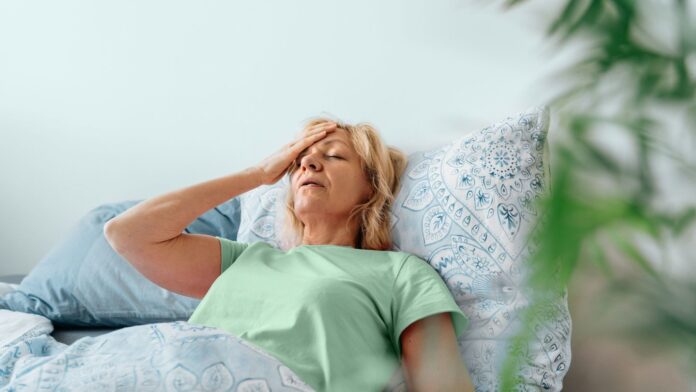Menopause, the natural biological transition marking the end of a woman’s menstrual cycles, affects half the population yet remains shrouded in myths and misinformation. This lack of understanding contributes to confusion, anxiety, and missed opportunities for proactive health management during this significant life stage.
This article delves into six common menopause misconceptions, separating fact from fiction to empower women with accurate information and equip them to navigate this transitional phase with greater confidence and informed choices.
Myth: Menopause Only Strikes in Your Fifties
While the average age for menopause onset is 51, perimenopause – the transitional period leading up to menopause – can begin anywhere from your mid-thirties to mid-fifties. It’s characterized by fluctuating hormone levels and irregular periods that can last for several years. Importantly, early or premature menopause (before age 45) affects about 5% of women, while a smaller percentage experience it even earlier (before age 40). This early onset can be linked to genetics, medical history (such as autoimmune diseases), lifestyle factors (smoking), and treatments like chemotherapy. It’s crucial to remember that menopause symptoms don’t simply vanish after reaching the point of confirmed menopause; they can persist for months or even years during postmenopause.
Myth: You Can’t Get Pregnant During Perimenopause
This is a dangerous misconception. Although fertility naturally declines during perimenopause, your ovaries can still release eggs until you’ve gone 12 consecutive months without a period. This means pregnancy is possible even with irregular cycles. If family planning isn’t a priority, continuing birth control measures until your doctor confirms menopause is essential.
Myth: Hot Flashes and Night Sweats Are the Whole Story
While hot flashes and night sweats are notorious menopause symptoms, they represent just two facets of a much broader spectrum. Over 30 potential symptoms can emerge, ranging from mood swings and sleep disturbances to headaches, heart palpitations, cognitive changes, vaginal dryness, weight gain, and libido fluctuations. Research indicates that approximately 40% to 56% of women experience sleep issues, while 44% to 62% report difficulties with memory or concentration during menopause.
Myth: Menopausal Hormone Therapy (MHT) Is Too Risky
Past research sparked concerns about MHT’s safety, particularly its link to increased heart disease and breast cancer risks. However, more recent studies have clarified that these risks are highly dependent on factors like age at initiation, individual health profiles, the specific formulation of hormones used, and ongoing monitoring. Current expert consensus considers MHT a safe and effective option for many women under 60 or within 10 years of menopause onset to manage symptoms like hot flashes, sleep disturbances, vaginal dryness, and mood changes when combined with personalized risk assessment and careful physician supervision.
Myth: There’s No Good Sex After Menopause
Menopause can indeed shift intimacy in ways that feel unfamiliar, but it doesn’t spell the end of a satisfying sex life. Declining estrogen levels often contribute to vaginal dryness, which can make intercourse uncomfortable. Fortunately, this is easily addressed with lubricants, moisturizers, and even low-dose vaginal estrogen therapy, restoring comfort and elasticity.
Open communication with your partner about changes in desire, arousal, or comfort is paramount. Addressing underlying health conditions, managing medications that might impact libido, and considering sexual therapy are additional strategies to explore if needed.
Myth: You’re on Your Own; No Help Exists for Menopause Symptoms
While lifestyle modifications (regular exercise, a balanced diet, stress management, quitting smoking, good sleep hygiene) lay the foundation for overall well-being during menopause, they don’t necessarily eliminate symptoms. Fortunately, a range of treatments are available to address specific needs:
- Nonhormonal medications: These include options like neurokinin antagonists (for hot flashes), antidepressants, gabapentin, and oxybutynin.
- Cognitive behavioral therapy (CBT): CBT can be particularly helpful for managing mood swings, sleep issues, and the emotional impact of hot flashes.
- Vaginal treatments: Nonhormonal lubricants and moisturizers alleviate vaginal dryness and discomfort.
- Acupuncture and integrative therapies: These may offer symptom relief when combined with other approaches.
Menopause is a natural transition marked by hormonal shifts that can present diverse challenges. Armed with accurate knowledge and proactive healthcare strategies, women can confidently navigate this phase of life, embracing its opportunities for personal growth and well-being.






























